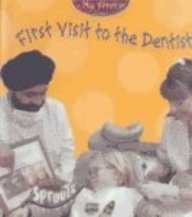In Christ I am a New Creation, Book I
Veronica Hughes
eBook
Today there are many excellent “introduction to Orthodoxy” books available for the inquirer and the catechumen—books on the faith, and those which narrate the long journey to the faith. Such writings have proven to be very helpful to those seeking the “pearl of great price.” There are also many books and essays, both ancient and recent, that teach the newly-illumined how to live, worship, pray, read the Holy Scriptures, and love God above all things. However, there are few modern books, and this thankfully is one of them, that tell of the potential struggles, misunderstandings, temptations, and fears which a person might encounter in his or her first five years of being in the Church. Meeting Christ at first enlightens the darkness, and reveals that which is hidden in the heart, the soul, the conscience and the mind of a person; this can bring the sinner to his knees in sorrow at the wounds that have been inflicted on others and on himself. But that initial meeting and change of life is again only the initial stage of repentance. Metropolitan Kallistos, in describing repentance in his essay, The Orthodox Experience of Repentance, quotes St. Theophan the Recluse: “Repentance is the starting point and foundation stone of our new life in Christ; and it must be present not only at the beginning, but throughout our growth in this life, increasing as we advance.” How very useful, then, is Veronica Hughes’s book, which describes how she learned what is truly involved in repentance, a purifying path where one will frequently encounter at least three hurdles: uncertainty, sorrow and even suffering. First uncertainty inevitably arises from the struggle to place one’s trust fully in Jesus Christ. Veronica’s book recounts many significant hurdles faced by the modern man and woman coming to an unalloyed faith. Veronica’s story recounts how her physical disabilities and suffering brought her out of her deep initial involvement with new age spirituality. The attentive reader will see how easily one can be caught up by the spirit of the age and be deluded about who God is, and this delusion leads one to a false and fatal understanding about human nature and destiny. Yet the ancient, holy, diagnosis applies: we are invited to put off the “old nature which belongs to [our] former manner of life and is corrupt through deceitful lusts” (Eph. 4:22) and be “renewed in the spirit of [our] minds, and put on the new nature, created after the likeness of God in true righteousness and holiness” (Eph. 4:24). The Holy Spirit renews our identity and prepares it for Paradise, beyond anything we can imagine. In addition to these fundamental aspects of how God guides our repentance, Veronica also describes another aspect of Church life that challenges the no-longer-neophyte Orthodox man or woman today. Orthodox worship can be so beautiful and heavenly, but to the modern person who desires to know what is happening and what it means, it can be initially very confusing. Learning how to be in the presence of God—without having to figure it all out—is not easy. Veronica’s remarks are wise and helpful in this area. All the while, the author’s spiritual journey was guided and aided by her pastor and the congregation of her parish, as well as the good advice of her husband. Not all people are so blessed to find such wholesome and loving guidance. Veronica had her own particular struggles—others will have a different path; that path may be no less thorny, but may it be filled with wonder and gratitude for the presence of God—Who sends His grace so abundantly to those who love Him. “In patience possess ye your souls” (Luke 21:19).(Taken from the Introduction to, "In Christ I am a New Creation, Taking up my Cross" written byArchpriest Lawrence Margitich.)




 J
J

 D
D

 I
I



